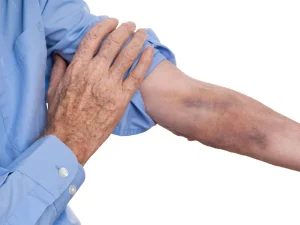
While treatment can be provided at any stage, the best outcomes occur with early treatment and intervention. When a person develops an alcohol use disorder, they experience brain changes that make it difficult to stop drinking. This leads to compulsive alcohol use, even when it causes serious consequences in the person’s life or harms those around them. If a person believes they may be drinking excessively or may have developed AUD, they should speak with a healthcare or mental health professional or reach out to a support organization.
The Stages of Alcoholism: Early, Chronic, and End Stage
- Experts have increasingly seen these terms as negative and unhelpful labels.
- Overall, a personalized approach that considers the individual’s unique needs, including any co-occurring disorders, is essential for effective alcohol addiction treatment.
- Even when someone tries to stop drinking during the middle stages of alcoholism, they are often unsuccessful, and their work and personal life start to decline as a result.
- The journey to recovery from alcohol addiction often includes a combination of medication and the support of peer groups.
- Tolerance develops when the same amount of alcohol no longer produces the same effects.
- It is a crucial time when individuals require professional help to manage severe physical and psychological symptoms.
- Despite awareness of the adverse effects, there is a struggle to abstain from alcohol.
You might experience occasional memory blackouts as a result of your drinking, and you might find yourself drinking on your own or in secret. Over time, you might rely on alcohol more and more in order to navigate the complexities of your daily life, signalling that you’ve developed a dependency on alcohol. Because of the severity of the disease, medically monitored alcohol detox is a necessity. Between 3 and 5 percent of people withdrawing from alcohol develop grand mal seizures and severe confusion, known as delirium tremens.

Who’s at Risk for Alcoholism?

By implementing these strategies and seeking ongoing support in recovery, individuals can reduce their risk of relapse and achieve long-term sobriety. It’s important to address the psychological dependence on alcohol and develop healthy coping mechanisms to manage stress and other triggers that may lead to drinking. Signs of AUD include a strong craving for alcohol, loss of control over alcohol intake, withdrawal symptoms upon cessation and a tolerance that leads to increased consumption.
Stages of Alcoholism: Pre, Early, Middle & End
It’s important to understand that alcoholism is not a choice or a moral failing, but rather a chronic illness that requires medical treatment. Alcohol is a depressant that can worsen symptoms of depression, making it more challenging for individuals to cope with their emotions. Moreover, individuals with depression may turn to alcohol as a way to self-medicate, which can lead to a vicious five stages of drinking cycle of drinking and worsening depression. Individuals may be aware that they have a problem, but may not be ready to admit it to themselves or others. Middle-stage alcoholics might deny their drinking problem or try to hide their alcohol use from others. However, with proper treatment and support, most people with alcoholism can recover and lead healthy, productive lives.
By this stage, the physical, emotional and social consequences of alcoholism are severe, and it’s crucial that you get immediate support. Though recovery is still possible, prolonged alcoholism can affect your health in the long-term. Some chronic alcoholics develop a condition called Wernicke-Korsakoff syndrome, which results from a thiamine (vitamin B-1) deficiency.

Medical management of these symptoms is crucial to ensure safety and comfort, reducing the risk of relapse and preparing the individual for subsequent therapeutic interventions. Understanding the shared neurobiology between AUD and other substance use disorders (SUDs) is also crucial. This overlap can accelerate the addiction cycle, making it more difficult to treat and manage. Healthcare providers must consider the individual’s entire mental health history, including the presence of co-occurring disorders, to deliver comprehensive care that can lead to better recovery outcomes. Seeking professional help for alcohol addiction can also provide individuals with a safe and supportive environment in which to recover. Treatment programs offer medical supervision during detoxification, which can be dangerous if attempted alone.
- And as tolerance builds, they’ll begin to drink more and more to achieve the same buzz or high they’re used to.
- It encompasses a range of behaviors from mild to severe addiction and is influenced by genetic, psychological, social, and environmental factors.
- At the most severe and final stage of alcohol dependence, a person critically needs treatment.
- They define binge drinking, the most common form of excessive drinking, as 5 or more drinks in a single occasion for males and 4 or more drinks in a single occasion for females.
- In one of these programs, addicted individuals can flush the alcohol out of their body in the safest way possible.
- In fact, those who have an addiction to alcohol have a much greater risk of having a heart attack than someone who doesn’t.
Mastering court-mandated alcohol & drug classes: Your essential guide for navigating programs with success.

Alcohol Use Disorder DSM-5 Criteria
- Some healthy coping mechanisms include exercise, meditation, therapy, or hobbies.
- Depending on the severity of the alcohol use disorder, this stage can be mildly annoying or severe.
- Because the body has adapted to deal with an alcohol-rich environment, the alcoholic physically needs it to avoid the painful symptoms of withdrawal.
- We publish material that is researched, cited, edited and reviewed by licensed medical professionals.
